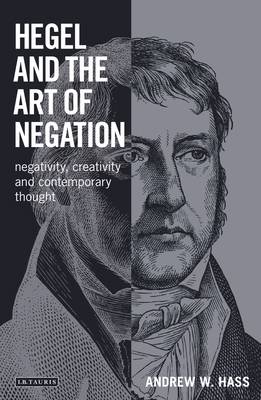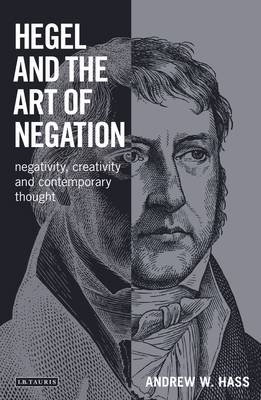
- Afhalen na 1 uur in een winkel met voorraad
- Gratis thuislevering in België vanaf € 30
- Ruim aanbod met 7 miljoen producten
- Afhalen na 1 uur in een winkel met voorraad
- Gratis thuislevering in België vanaf € 30
- Ruim aanbod met 7 miljoen producten
Omschrijving
Why is the philosopher Hegel returning as a potent force in contemporary thinking? Why, after a long period when Hegel and his dialectics of history have seemed less compelling than they were for previous generations of philosophers, is study of Hegel again becoming important? Fashionable contemporary theorists like Francis Fukuyama and Slavoj Zizek, as well as radical theologians like Thomas Altizer, have all recently been influenced by Hegel, the philosopher whose philosophy now seems somehow perennial- or, to borrow an idea from Nietzsche-eternally returning. Exploring this revival via the notion of 'negation' in Hegelian thought, and relating such negativity to sophisticated ideas about art and artistic creation, Andrew W. Hass argues that the notion of Hegelian negation moves us into an expansive territory where art, religion and philosophy may all be radically conceived and broken open into new forms of philosophical expression. The implications of such a revived Hegelian philosophy are, the author argues, vast and current.
Hegel thereby becomes the philosopher par excellence who can address vital issues in politics, economics, war and violence, leading to a new form of globalised ethics. Hass makes a bold and original contribution to religion, philosophy, art and the history of ideas.
Specificaties
Betrokkenen
- Auteur(s):
- Uitgeverij:
Inhoud
- Aantal bladzijden:
- 240
- Taal:
- Engels
- Reeks:
- Reeksnummer:
- nr. 37
Eigenschappen
- Productcode (EAN):
- 9781780765570
- Verschijningsdatum:
- 12/11/2013
- Uitvoering:
- Hardcover
- Formaat:
- Genaaid
- Afmetingen:
- 157 mm x 234 mm
- Gewicht:
- 521 g

Alleen bij Standaard Boekhandel
Beoordelingen
We publiceren alleen reviews die voldoen aan de voorwaarden voor reviews. Bekijk onze voorwaarden voor reviews.







